More Australians are installing heat pump water heaters as an energy-efficient alternative to traditional electric and gas hot water systems. They use ambient heat from the surrounding air to heat water, helping homeowners save on their hot water energy consumption and reduce their carbon emissions.
However, there are some common questions to consider before installing a heat pump. In this article, we’ll look at the 10 most frequently asked questions about heat pump water heaters to help you make an informed decision.
1. How does a heat pump water heater work?
A heat pump extracts heat from the surrounding air and transfers it to your water in a few key steps:
- Heat Absorption: Surrounding air is drawn into the system which then passes through an evaporator A liquid refrigerant absorbs the ambient heat from the air and turns to vapour.
- Compression: A heat pump contains a compressor which turns the vapour to a hot gas.
- Heat Exchange: The high temperature gas passes through a microchannel heat exchanger which wraps around the tank and heats the water.
- Cycle Repeat: After heat is transferred to the water in the tank, the refrigerant returns to a liquid state where the cycle repeats.
2. What is the difference between heat pump and solar water heaters?
Solar and heat pump water heaters are both renewable options, but have some key differences. Solar hot water heaters use the sun’s direct and indirect solar radiation to heat water through collectors mounted on the roof, whereas a heat pump uses the ambient heat in the surrounding air.
A heat pump is an excellent alternative for homes where solar may not be suitable due to reasons such as too much shade, limited roof space and your home’s orientation.
3. Are heat pumps eligible for Government Incentives?
Heat pumps are eligible for Small-scale Technology Certificates (STCs), an Australian Federal Government program to reduce the upfront cost. Some states also have their own incentives which can be used in addition to STCs to help further reduce the initial cost.
How much you can save with these incentives depends on your location, the capacity and efficiency of your new heat pump water heater, and the system you are replacing.
ALSO READ: What renewable energy incentives are available in Australia?
4. I have an electric water heater. Can I replace it with a heat pump?
Not only does a heat pump have a similar storage tank to an electric hot water system, but it often uses similar electrical and plumbing connections, making for an easy replacement provided your existing system is installed outdoors.1
A heat pump needs sufficient space outdoors for air circulation, so be sure to speak with your plumber or local Rheem solar specialist to evaluate your setup.
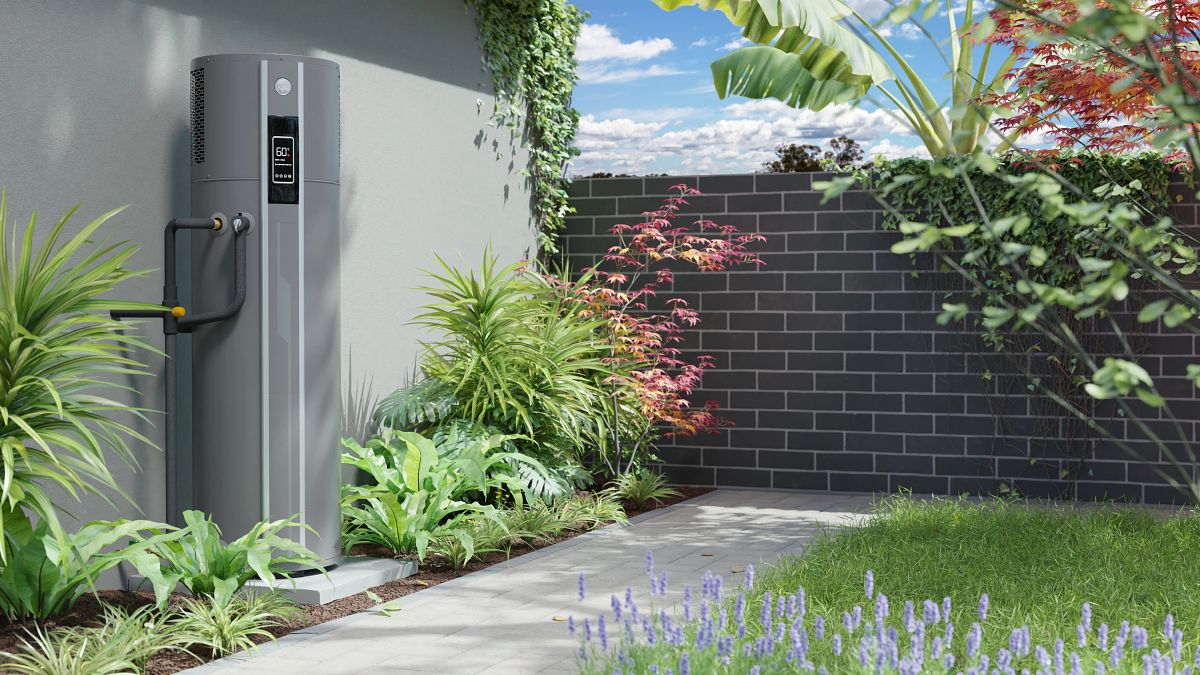
5. Can a heat pump work in cold weather?
Heat pumps work in cold weather to ensure you have hot water when you need it most. Here are some details on the temperatures Rheem heat pump water heaters can operate in:
- Rheem AmbiPower MDc-180 Heat Pump: -7°C to +43°C.
- Rheem AmbiPower 280e Heat Pump: -6°C to +43°C.
- Rheem Ambiheat HDc-270 Heat Pump: -5°C to +43°C.
- Rheem MPi-325 Series II Heat Pump: 5°C to +43°C.2
If temperatures fall below the minimum level or the heat pump stops heating for any reason, there is a backup element to ensure you always have a supply of hot water. The Rheem MPi- 325 Series II Heat Pump has a 3.6kW backup element, and the Rheem AmbiPower and Ambiheat options have a 2.4kW element.
6. How much could I save on my energy use with a heat pump?
How much energy you can save depends on different factors including the climate where you live, type of water heater being replaced, hot water consumption and fuel tariff. As a guide, here is how much you could save when replacing a similar-sized electric water heater with each Rheem heat pump.3
- Up to 65% with the Rheem MPi-325 Series II Heat Pump (325 litre capacity).
- Up to 70% with the Rheem AmbiPower® MDc-180 Heat Pump (178 litre capacity).
- Up to 73% with the Rheem Ambiheat® HDc-270 Heat Pump (270 litre capacity).
- Up to 73% with the Rheem AmbiPower® 280e Heat Pump (280 litre capacity).
7. Is installing a heat pump good for the environment?
Installing a heat pump has environmental benefits. Because they use a renewable source of energy, they consume less energy and emit fewer carbon emissions.
Also, newer heat pump systems are manufactured using lower Global Warming Potential (GWP) refrigerants. GWP is a measure of how much heat a greenhouse gas traps in the atmosphere over a specific time, usually 100 years. When released in the atmosphere, they act like a blanket insulating the earth and have a significant impact on global warming. Hence, the lower the GWP a heat pump has, the more environmentally friendly it is.
Rheem’s AmbiPower 280e Heat Pump uses the Ultra Low GWP refrigerant R290. The Rheem AmbiPower MDc-180 and Rheem Ambiheat HDc-270 Heat Pumps use low GWP refrigerant 513a.
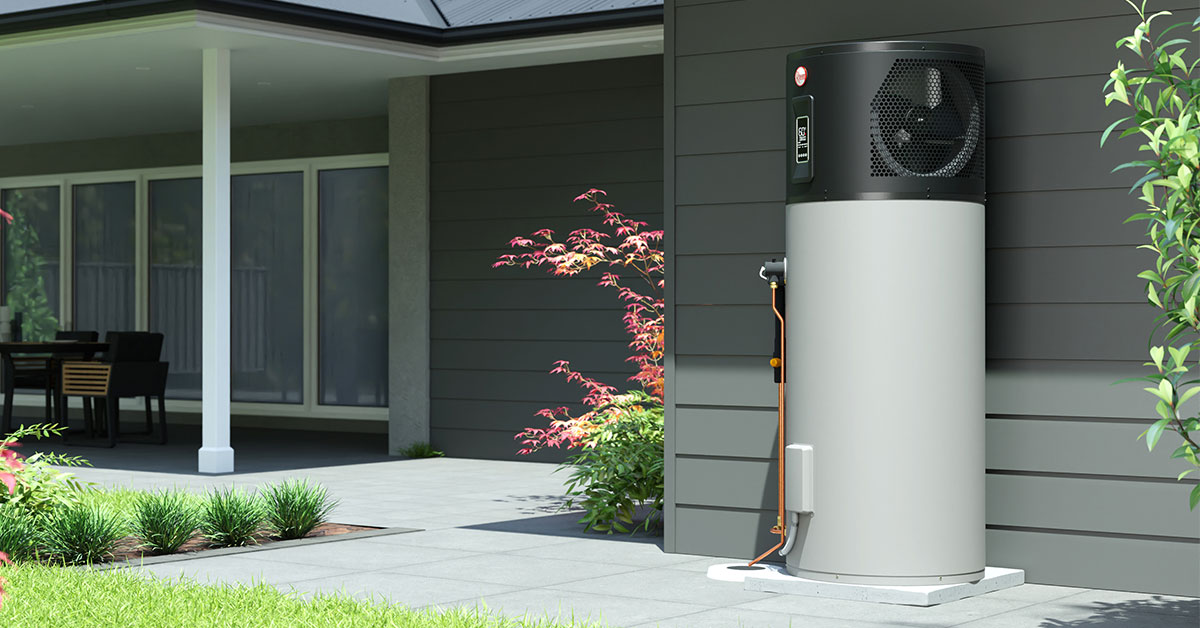
8. Are heat pumps noisy?
Heat pumps make some noise due to the operation of the fan. Newer systems are designed to make less noise, comparable to that of an air conditioner or refrigerator.
9. Does a heat pump require maintenance?
It is recommended you have an annual inspection of your heat pump water heater by a plumber. This includes checking and cleaning air filters, inspecting the refrigerant level and removing any sediment buildup in the tank.
10. What do I need to know about the installation process?
A licensed plumber will:
- Understand your installation requirements and provide advice on the best solution for your home.
- Recommend the size and type of heat pump to suit your household hot water requirements.
- Install a heat pump from a reputable brand like Rheem to avoid coming back to fix an inferior product or installation.
- Talk you through the costs and options, and ultimately complete an installation that meets Plumbing and Building codes
LOOKING TO INSTALL A HEAT PUMP?
For more information about heat pumps or if you’re looking to install one for your home, speak to your local plumber or contact your local Rheem solar specialist today.
Disclaimers:
- Minor modifications may be Speak to your plumber or local Rheem solar specialist.
- The specified temperature range is the operational range of the Heat Pump. The electric element activates when the ambient air temperature is outside this range and heating of the water is required.
- Energy savings are based on Australian Government approved TRNSYS simulation modelling using a medium load in Zone 3 and apply when replacing a similar sized storage electric water heater. Any savings will vary depending upon your location, type of water heater being replaced, hot water consumption and fuel tariff.
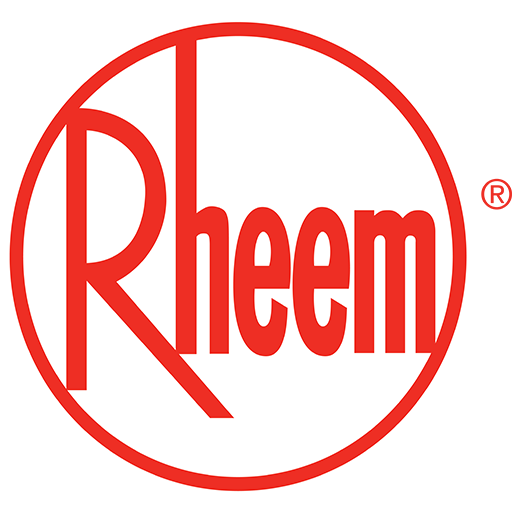
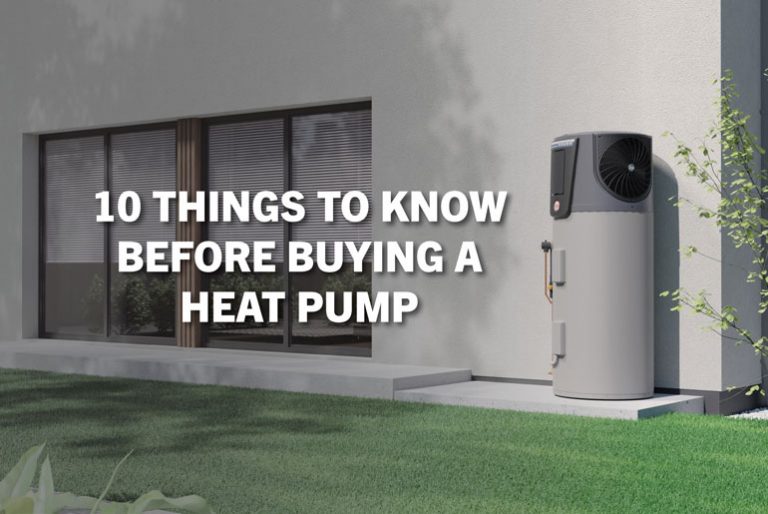
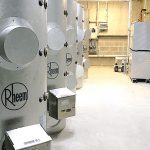
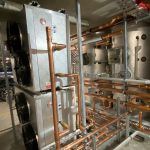
Comments are closed.